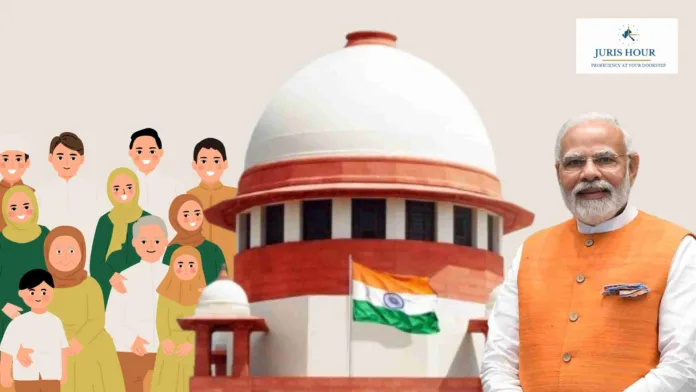The Supreme Court will hear the petitions filed in the name of Asaduddin Owaisi Versus UOI challenging the Waqf Amendment Act, 2025 on April 15, 2025.
In a significant development, the Central Government has filed a caveat before the Supreme Court of India in response to the petitions challenging the recent amendments to the Waqf Act. This marks the Centre’s first formal reaction to the legal challenges against the controversial changes in the Waqf legislation.
A caveat is a legal precaution wherein a party informs the court that no ex-parte order (order passed without hearing the other side) should be issued without prior notice and an opportunity to be heard. By filing this application, the Centre has asserted its position as a key respondent in the matter and ensured that it will be heard before any interim relief is granted.
Multiple petitions have been moved before the apex court questioning the constitutional validity and procedural propriety of the Waqf Amendments. The amendments, which have stirred widespread debate and concern across several quarters, are being challenged on grounds including alleged violation of property rights, secular principles, and federal structure.
The Centre’s caveat filing signals its preparedness to vigorously defend the amendments and participate in the proceedings from the outset. Sources in the legal fraternity view this move as an attempt to preempt any stay or interim directions that could potentially stall the implementation of the amended provisions.
As the matter now awaits listing before the appropriate bench, the Supreme Court’s initial observations and the government’s affidavit, once filed, will likely set the tone for the judicial scrutiny of the amendments. The outcome may have far-reaching implications for the governance and regulation of waqf properties in India.
Read More: ITR-2 Filing Process 2025-26
Case Title: Asaduddin Owaisi Versus UOI


